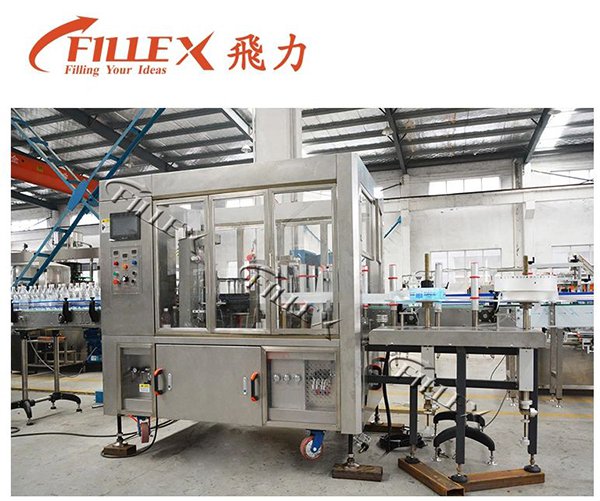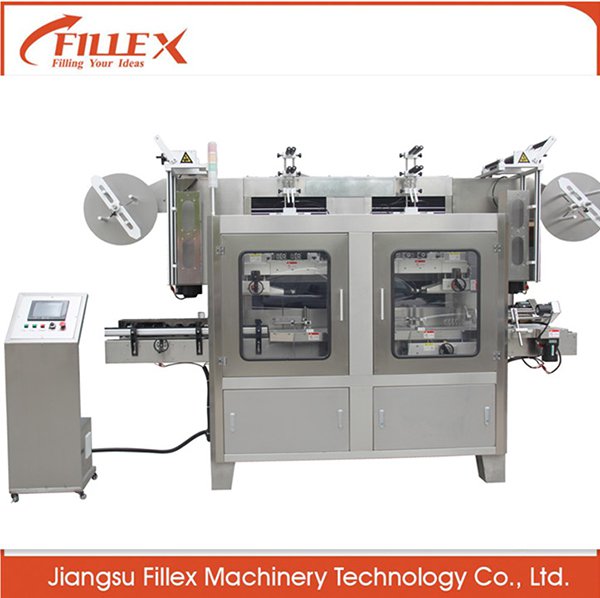- WhatsApp: / 008613773256419
- Email: Jessy@fillex-packer.com
The labeling machine is a device that sticks rolls of self-adhesive paper labels (paper or metal foil) on PCBs, products or specified packaging. The labeling machine is an indispensable part of modern packaging.
With the advancement of technology, there are more and more types of labeling machines on the market in my country, and they have shifted from manual and semi-automatic labeling to automated high-speed labeling, which are widely used in pharmaceutical, food, and electronics industries.
When consumers obtain information on medicines, the more direct way is to look at the packaging of medicines, so the labeling machine plays an important role in the packaging of medicines.
It is understood that the pharmaceutical industry has high requirements for the speed of the labeling machine. The labeling machine needs to consider the integration of the process before and after labeling when designing, and provide additional functions such as light inspection before labeling and automatic bottle holder after labeling.

Among them, the automatic labeling machine has the characteristics of small size, wide application range, high production efficiency, and long service life, which play an important role in the packaging process of medicines.
In recent years, the product quality of automatic labeling machines has been qualitatively improved, and the market share has steadily increased. Statistics show that in 2019, the total sales of major domestic/imported labeling machines reached nearly 40,000 units. The market scale is prominent. The products of major manufacturers are facing differentiated development and changes, and the polarization will become more obvious. The industry believes that it is mainly due to the following factors.
First, market demand drives the development of automatic labeling machines. With the continuous improvement of people's living standards and the emphasis on health, the demand for medicines continues to increase. In recent years, the scale of the pharmaceutical market has continued to expand, and the structure is facing reconstruction, and the competition between enterprises has intensified.
For the fully automatic labeling machine industry, which is closely related to pharmaceutical packaging, enhancing the supply capacity of the entire industry chain in the changing market demand structure has become a top priority. In this context, the packaging industry equipment has to be reformed and innovated to strengthen the responsibility of the packaging industry to meet the needs of market development.

Second, the diversity of the packaging industry drives the development of fully automatic labeling machines. With the prosperity of the market, the packaging industry has also shown diversity, and the derived packaging production lines and assembly lines have continued to extract high equipment requirements. This also requires a variety of automatic labeling equipment with different functions to meet the packaging of products in different industries such as food, medicine, daily chemicals, chemicals, and electronics, making the market for automatic labeling machines continue to expand.
Third, the need for the development of the automatic labeling machine itself. The traditional labeling machine can only be applied to the packaging needs of different periods. In the current fiercely competitive environment of pharmaceutical companies, if companies face the packaging industry in an unchanging situation, their packaging efficiency and packaging quality are difficult to compete with other companies. This also requires fully automatic labeling machine companies. , Persist in keeping pace with the needs of pharmaceutical companies, keep pace with the times and innovate at all times to usher in better development opportunities.
It can be seen that as competition in the pharmaceutical market intensifies, fully automatic labeling machines are also facing fiercer competition. It is reported that since 2020, customers who have newly added automated production lines have an urgent need for fully automatic labeling machine equipment. On the one hand, the domestic labeling machine market is developing too fast, leading to the existence of some bubbles, and it is difficult for users to distinguish good from bad; On the other hand, while some users continue to use traditional labeling machines, there will be demands and budgets for purchasing and replacing automatic labeling machines. The prospects are quite optimistic.